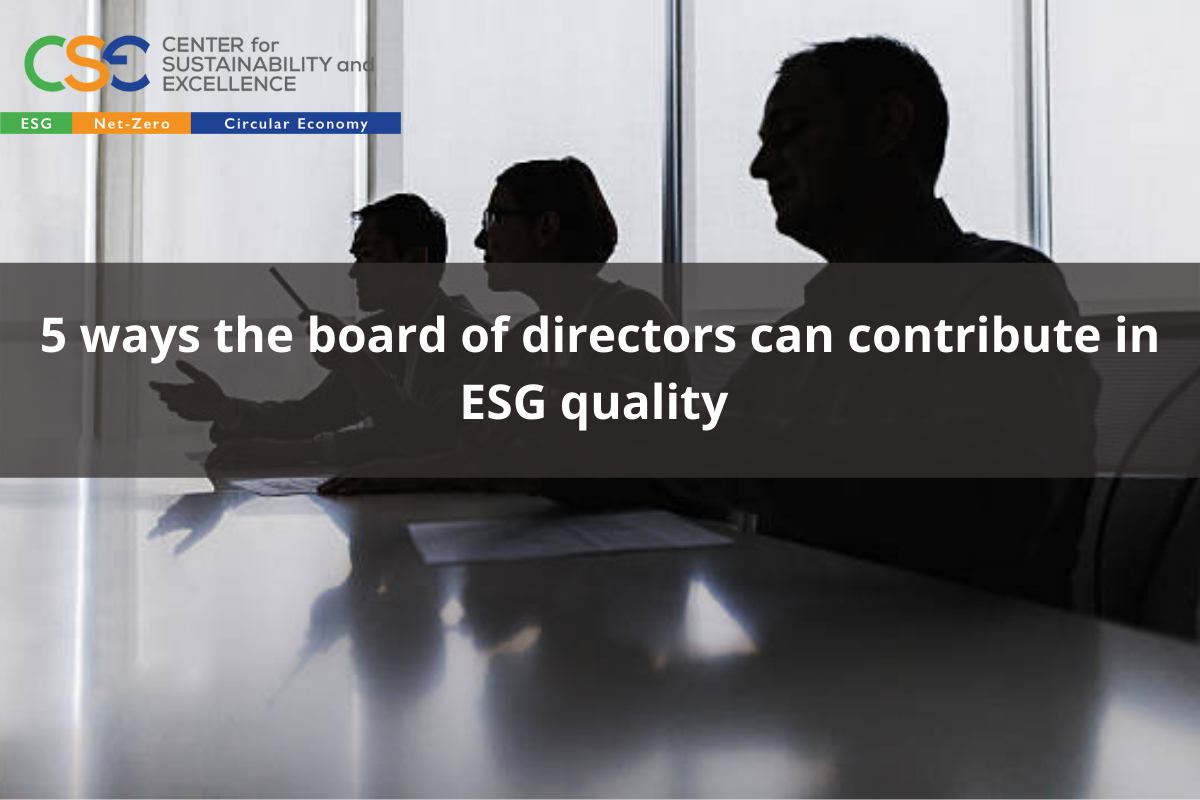ESG rises-up the political agenda and therefore it is being reported. The latest regulatory developments are shaping investor expectations on ESG and many board of directors are considering the best way to contribute to the long-term success with both quantitative and qualitative data. However, most companies do not have a formal process to collect nonfinancial metrics and therefore, they can hardly confirm their accuracy.
How can boards contribute to more qualitative data?
By ensuring sources and frameworks: In order to improve the quality of data, companies should first ensure the right data sources and what frameworks or standards can be used to produce the information the investors are looking for.
By using a protocol in ESG oversight: Using a specific protocol could prove useful as it helps the directors to judge the process and find errors. Such a protocol could include mapping, weighing, deciding and documenting. Having an effective internal control around the origins of the information also gives greater management comfort.
By considering greater assurance: There is a growing demand for assurance engagements that enhance the degree of confidence. Internal audit or external auditors can request and perform additional assurance over the metrics and information reported.
By establishing a governance structure for ESG metric disclosures: Governance structure can be essential to the review conduction. Furthermore, having more frequent reviews can ensure better control as it enables the company to find missing ESG information from interim periods.
By creating a stand-alone ESG committee: Companies with stand-alone ESG committees have higher sustainability scores. An exclusive committee in ESG reporting makes sure that the information disclosed is meaningful to investors.
ESG has become a crucial integrated business function and knowing that most ESG data are based on past performance, the more real-time the data are recorded, the better the board of directors are able to forecast where the company needs to go. Producing investor-grade ESG disclosures is critical as investors have attached even greater importance to a company’s ESG performance, fueled by the COVID-19 pandemic.
Is your organization lacking investor-grade ESG metrics? CSE is the most qualified training provider in the field of ESG. For more than 15 years over 8.000 Managers and C-Suite Executives from Fortune 500 companies, local governments, and academia in 90 Countries have trusted CSE, participating in its flagship course, the Certified Sustainability ESG Practitioner Program, Leadership Edition. Stay tuned for the upcoming programs and make sure to reserve your spot well timed!







